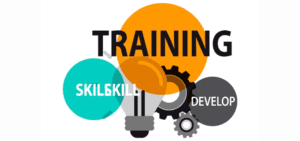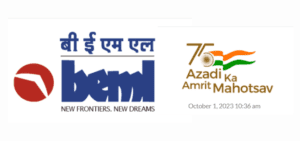Author: careers.collegebol.com
-

A Quick Guide to Finding Your Ideal...
Continue ReadingSearching for the perfect PG (Paying Guest) or hostel? Here’s a concise guide to help you navigate the process:
1. Set Your Budget: Determine your budget for accommodation.
2. Location Matters: Consider proximity to work or college.
3. Research Online: Use websites and apps for listings.
4. Seek Recommendations: Ask friends for suggestions.
5. Visit in Person: Inspect accommodations personally.
6. Check Amenities: Evaluate facilities like Wi-Fi and security.
7. Read the Agreement: Understand rental terms before signing.
8. Safety First: Prioritize safety and security.
9. Talk to Residents: Get insights from current or former residents.
10. Trust Your Instincts: If something doesn’t feel right, keep looking.
With these tips, you’ll find your ideal PG or hostel in no time!
-


Pay After Placement Programs: A Game-Changer for...
Continue ReadingIn the ever-evolving landscape of education and employment, traditional models are giving way to innovative approaches that benefit both students and employers. One such paradigm-shifting concept is the “Pay After Placement” program, which is gaining traction as a game-changer for aspiring professionals.
Breaking Down Pay After Placement Programs:
The concept is refreshingly simple yet powerful. Instead of paying tuition fees upfront, students can enroll in programs where they commit to paying a certain percentage of their future income to the educational institution after securing a job. This model aligns the interests of educational institutions and students, ensuring that the quality of education directly impacts employment outcomes.
Benefits for Students:
-
Reduced Financial Burden: Pay After Placement programs significantly reduce the financial burden on students, particularly those from economically disadvantaged backgrounds. They can access quality education without accumulating substantial debt.
-
Incentive for Success: Since students commit to paying a percentage of their income, they are incentivized to succeed academically and actively seek employment. This creates a win-win situation, where students are motivated to excel, and institutions are invested in their success.
-
Risk Mitigation: Traditional education models require students to pay hefty fees upfront, often before they secure a job. In contrast, Pay After Placement programs mitigate this risk by deferring payments until graduates are gainfully employed.
Benefits for Educational Institutions:
-
Alignment of Interests: Educational institutions offering Pay After Placement programs have a vested interest in providing top-notch education and career support services. They succeed when their students succeed.
-
Access to Diverse Talent: By removing financial barriers, institutions can attract a more diverse pool of students, ensuring a broader range of perspectives and talents in their classrooms.
-
Strong Alumni Network: Graduates of Pay After Placement programs often feel a strong connection to their alma mater, as they perceive the institution as a partner in their career journey. This leads to a robust alumni network that can benefit both current students and the institution itself.
Challenges and Considerations:
While Pay After Placement programs hold promise, they are not without challenges. Educational institutions must carefully assess their financial sustainability, program quality, and the potential for student success. Likewise, students should evaluate the terms of the agreement, ensuring transparency and fairness.
In conclusion, Pay After Placement programs represent a paradigm shift in the world of education and employment. By aligning the interests of students and institutions, these programs offer a lifeline to those seeking quality education without the immediate financial burden. As the educational landscape continues to evolve, Pay After Placement programs are likely to play an increasingly prominent role in shaping the future of learning and career development.
-
-


Unleash Your Potential: Skill Centers Across Gujarat...
Continue ReadingGujarat, a state renowned for its industrious spirit and entrepreneurial zeal, has been a hub of economic activity and growth for decades. In this dynamic environment, acquiring the right skills is crucial for personal and professional advancement. Fortunately, Gujarat is home to a network of skill centers that are empowering individuals with the knowledge and expertise needed to excel in various industries. In this article, we explore these skill centers across different cities in Gujarat and their transformative impact.
1. Ahmedabad – The Learning Hub:
Ahmedabad, the economic capital of Gujarat, hosts a multitude of skill development centers. The city’s skill centers cover a wide range of domains, from information technology and management to healthcare and hospitality. Organizations like GTU Innovation Council and IIT Gandhinagar’s Extension Center provide courses on emerging technologies, while institutions like Nirma University offer management programs that equip students with leadership skills.
2. Surat – The Textile and Diamond Hub:
Surat, known for its thriving textile and diamond industries, has specialized skill centers catering to these sectors. Here, aspiring designers and gemologists can enhance their craftsmanship and knowledge. The Surat Diamond Association’s Gemological Institute and government initiatives like the Indian Diamond Institute are instrumental in nurturing talent in these domains.
3. Vadodara – The Cultural and Educational Oasis:
Vadodara, with its rich cultural heritage and educational institutions, offers a diverse range of skill development opportunities. The Maharaja Sayajirao University of Baroda provides courses in arts, sciences, and management. Meanwhile, the city’s industrial growth is complemented by skill centers like GIDC Skill Development Center, which focus on manufacturing and technical skills.
4. Rajkot – The Engineering and Manufacturing Hub:
Rajkot, a thriving industrial city, specializes in skill centers that cater to engineering and manufacturing. These centers provide training in precision engineering, CNC machining, and metalworking, essential skills for the city’s numerous engineering industries. Government initiatives like ITIs (Industrial Training Institutes) also play a pivotal role in equipping students with practical skills.
5. Gandhinagar – The Seat of Government and Technology:
Gandhinagar, the capital city of Gujarat, is home to prestigious educational institutions and government-run skill development programs. The Gujarat Forensic Sciences University offers specialized courses in forensic sciences, while the Gujarat Knowledge Society focuses on IT and digital skills.
6. Bhavnagar – The Maritime Center:
Bhavnagar, with its strategic coastal location, emphasizes skill development in maritime and fisheries-related sectors. The Central Institute of Fisheries Education (CIFE) and the Marine Training Institute provide training in fishing, marine technology, and aquaculture, contributing to the region’s fisheries industry.
7. Anand – The Dairy Capital:
Anand, famous for its dairy industry, hosts the National Dairy Development Board (NDDB) and the Institute of Rural Management Anand (IRMA). These institutions offer programs in dairy technology, rural management, and cooperative management, nurturing talent for the dairy sector.
8. Bharuch – The Chemical and Petrochemical Hub:
Bharuch, an industrial city along the Narmada River, is home to several chemical and petrochemical companies. Skill development centers like the Ankleshwar Industrial Estate offer courses in chemical engineering, safety, and environmental management, ensuring a skilled workforce for the region.
In conclusion, Gujarat’s skill centers in various cities are instrumental in bridging the gap between education and employment. They empower individuals with the practical skills and knowledge needed to excel in their chosen fields. These centers not only contribute to individual growth but also drive the state’s economic development by providing a skilled and competent workforce. Whether you aspire to become a software developer, a gemologist, an engineer, or a dairy technologist, Gujarat’s skill centers offer a path to realizing your potential and contributing to the state’s prosperity.
-


Mastering the Digital Age: Four Essential Online...
Continue ReadingIn today’s rapidly evolving digital landscape, staying competitive in the job market often requires continuous learning and upskilling. Fortunately, there is an abundance of online courses that cater to a variety of career paths and skill sets. In this article, we’ll explore four essential online courses and the benefits they offer.
1. Data Science:
Need: The explosive growth of data has led to a surging demand for professionals skilled in data analysis and interpretation. Companies rely on data scientists to extract valuable insights, make informed decisions, and drive business strategies.
Benefits:
- In-Demand Skills: Data science courses teach you the skills needed to process, analyze, and visualize data effectively, making you highly sought-after in the job market.
- Versatile Career Opportunities: Data science skills are applicable across various industries, from finance and healthcare to e-commerce and entertainment.
- High Earning Potential: Data scientists are among the highest-paid professionals due to their ability to translate data into actionable business insights.
2. Crack AI/ML Interview:
Need: Artificial Intelligence (AI) and Machine Learning (ML) are reshaping industries by automating tasks and enabling data-driven decision-making. To enter this field, you need to master AI/ML concepts and algorithms.
Benefits:
- Specialized Knowledge: These courses cover advanced AI/ML topics, including deep learning, neural networks, and natural language processing, essential for tackling complex AI/ML interviews.
- Competitive Edge: Completing such courses enhances your understanding of AI/ML, giving you a competitive advantage during job interviews.
- Career Advancement: AI/ML professionals are at the forefront of technological innovation and enjoy promising career prospects.
3. System Design:
Need: As software systems become more complex, the ability to design scalable, efficient, and robust systems is crucial. System design courses teach you how to create solutions that meet real-world challenges.
Benefits:
- Practical Skills: These courses provide hands-on experience in designing large-scale systems, which is highly valuable for software engineers and architects.
- Problem-Solving: You’ll learn to tackle complex problems and design solutions that can handle high loads, ensuring system reliability and performance.
- Career Growth: Mastering system design is an essential skill for senior software roles and positions you for leadership and architect roles.
4. Advanced Excel:
Need: Microsoft Excel remains an indispensable tool for data analysis, financial modeling, and business reporting. Advanced Excel courses help you leverage Excel’s full potential.
Benefits:
- Efficiency: You’ll learn to work more efficiently with Excel, saving time on tasks like data manipulation, formula creation, and reporting.
- Data Analysis: Advanced Excel skills empower you to perform complex data analysis, create insightful visualizations, and make data-driven decisions.
- Versatility: Proficiency in Excel is valuable in various roles, from finance and accounting to marketing and project management.
-


A Software Developer’s Journey: Navigating a Mock...
Continue ReadingInterviewer: Good morning. Thank you for coming in today. Let’s start with a brief introduction. Can you tell us about your background and experience as a software developer?
Candidate: Good morning. I have a Bachelor’s degree in Computer Science and have been working as a software developer for the past five years. I’ve primarily focused on web development, working with technologies such as JavaScript, React, and Node.js. I’ve also had experience with database management using SQL and NoSQL databases.
Interviewer: That sounds great. Let’s dive into some technical questions. Can you explain what RESTful APIs are and why they are important in web development?
Candidate: RESTful APIs, or Representational State Transfer, are a set of architectural principles for designing networked applications. They use HTTP methods like GET, POST, PUT, and DELETE to perform CRUD operations (Create, Read, Update, Delete) on resources. RESTful APIs are important in web development because they provide a standardized way for different systems to communicate over the internet. They are stateless, scalable, and allow for easy integration between various platforms and services.
Interviewer: Excellent explanation. Now, let’s talk about front-end development. Can you explain the concept of “state” in React and how it’s managed?
Candidate: In React, “state” refers to any data that should be saved and maintained for a component. It represents the current condition or data of a component and can change over time. State is typically initialized in a constructor or by using the `useState` hook in functional components. To manage state changes, React provides methods like `setState` for class components and `useState` for functional components. When state changes, React re-renders the component to reflect the updated state.
Interviewer: Great explanation. Now, let’s shift to problem-solving. Can you solve a coding problem for us? Here’s a simple one: Write a function in Python to reverse a string.
Candidate: Certainly. Here’s a Python function to reverse a string:
“`python
def reverse_string(input_str):
return input_str[::-1]
“`Interviewer: Well done. Now, let’s discuss your experience with version control. Can you explain the purpose of Git and how it benefits software development?
Candidate: Git is a distributed version control system that allows developers to track changes in their codebase. It provides benefits such as:
1. Version History: Git maintains a complete history of code changes, making it easy to track when, how, and why changes were made.
2. Collaboration: Multiple developers can work on the same project simultaneously by creating branches, and Git helps merge their changes seamlessly.
3. Backup: Git serves as a backup system for code, ensuring that data loss is minimal.
4. Branching and Merging: Developers can create feature branches to work on specific tasks and merge them back into the main branch when completed.Interviewer: Impressive. Lastly, can you tell me about a challenging project you’ve worked on and how you overcame difficulties during its development?
Candidate: Certainly. In a previous role, I was part of a team developing a real-time chat application. One challenge we faced was handling high concurrency and ensuring low latency. To overcome this, we optimized our code for performance, implemented efficient data structures, and used WebSockets for real-time communication. We also conducted load testing and profiling to identify bottlenecks and fine-tuned our system accordingly. In the end, we achieved our performance goals and delivered a highly responsive chat application.
Interviewer: That’s an excellent example of problem-solving in a real-world scenario. Thank you for sharing that. We’ve come to the end of our interview. Do you have any questions for us?
Candidate: Yes, I do. Can you tell me more about the team I’d be working with and the projects currently in progress?
Interviewer: Of course. We’ll provide you with that information after the interview. Thank you for your time today. We’ll be in touch soon.
Candidate: Thank you for the opportunity. I look forward to hearing from you.
This mock interview covers various aspects of a developer’s skills and experiences, including technical knowledge, problem-solving abilities, and interpersonal skills. It demonstrates how a candidate can effectively respond to common interview questions in a developer job interview.
-


Mastering the Interview: Q&A with Examples
Continue ReadingJob interviews can be nerve-wracking, but with the right preparation and practice, you can confidently navigate the most common interview questions. In this article, we’ll provide you with a series of frequently asked interview questions along with examples of effective responses to help you excel in your next job interview.
Question: Tell Me About Yourself:
Answer: “I have a strong background in project management with over five years of experience. In my current role at XYZ Company, I’ve successfully led cross-functional teams to complete projects ahead of schedule and under budget. I’m known for my strong problem-solving skills and ability to adapt to rapidly changing environments.”
Question: What Are Your Strengths?
Answer: “One of my key strengths is my attention to detail. I’m meticulous in my work and ensure that every task is completed to the highest standard. Additionally, my strong communication skills have allowed me to collaborate effectively with teams and clients.”
Question: What Are Your Weaknesses?
Answer: “I tend to be highly critical of my own work, which can sometimes lead to perfectionism. However, I’ve learned to balance this by setting realistic goals and priorities to ensure I meet deadlines effectively.”
Question: Why Do You Want to Work Here?
Answer: “I’ve been following your company’s growth and industry impact for a while now. Your commitment to innovation and your dedication to environmental sustainability align with my values. I’m excited about the opportunity to contribute to a company that’s making a positive difference.”
Question: Can You Describe a Challenging Situation at Work and How You Handled It?
Answer: “In my previous role, we faced a tight deadline for a critical project. There was a breakdown in communication between team members, which caused delays. I took the initiative to schedule regular team meetings, clarify roles, and establish a clear timeline. As a result, we not only met the deadline but also improved teamwork.”
Question: Where Do You See Yourself in 5 Years?
Answer: “In five years, I see myself in a leadership role within the company, leveraging my skills and experience to drive innovation and contribute to the company’s growth. I’m committed to continuous learning and development to achieve that goal.”
Question: Why Should We Hire You?
Answer: “You should hire me because I bring a unique blend of skills, experience, and a passion for this industry. My track record of successfully managing complex projects and my ability to collaborate effectively make me a valuable asset to your team. I’m confident in my ability to contribute to your company’s success.”
Question: Do You Have Any Questions for Us?
Answer: “Yes, I’m interested in the company’s future goals and growth plans. Could you tell me more about the opportunities for professional development and advancement within the organization?”
Question: Tell Me About a Time When You Faced a Conflict at Work and How You Resolved It?
Answer: “In my previous role, there was a disagreement within the team regarding project priorities. To resolve the conflict, I initiated a team meeting to openly discuss everyone’s concerns and perspectives. Through active listening and collaboration, we reached a consensus on the project’s priorities and developed a clear plan to move forward. This experience taught me the importance of effective communication and teamwork in conflict resolution.”
Question: How Do You Handle High-Pressure Situations or Tight Deadlines?
Answer: “I thrive in high-pressure situations because I maintain a calm and organized approach. When facing tight deadlines, I prioritize tasks, set realistic goals, and communicate transparently with my team. I also make use of time management techniques and am not afraid to ask for help or delegate when necessary. This approach has helped me consistently meet deadlines and deliver quality results.”
-


Dressing for Success: An Effective Dress Code...
Continue ReadingJob interviews are your chance to make a lasting impression on potential employers. Beyond showcasing your qualifications and skills, your appearance plays a vital role in creating a positive first impression. An effective dress code for interviews can help you convey professionalism, confidence, and a genuine interest in the job. In this article, we’ll explore the key elements of dressing for success in interviews.
Research the Company Culture: Before selecting your interview attire, research the company’s culture and industry standards. Dress codes can vary significantly from one workplace to another. Some companies have a formal dress code, while others embrace business casual or even casual attire.
Opt for Professional Attire: In most cases, it’s best to err on the side of caution and dress professionally. For men, this typically means a well-fitted suit, dress shirt, tie, and polished dress shoes. Women can choose between a pantsuit, skirt suit, or a conservative dress with closed-toe shoes. Ensure that your attire is clean, wrinkle-free, and well-maintained
Colors Matter: Stick to classic, neutral colors such as black, navy, gray, or beige for suits and clothing. Bright or overly trendy colors can be distracting, so it’s best to keep your attire understated.
Grooming Matters: Personal grooming is as crucial as clothing. Ensure you are clean-shaven (if applicable), have well-kempt hair, trimmed nails, and fresh breath. Minimal, subtle makeup and accessories are preferable.
Footwear: Your choice of shoes should complement your outfit. Closed-toe, leather or faux-leather shoes are generally the safest option. Ensure they are polished and in good condition.
Avoid Overdoing Fragrances: It’s essential to be mindful of fragrances. Excessive perfume or cologne can be overpowering and may not be appreciated by interviewers or colleagues with sensitivities.
Appropriate Fit: Ill-fitting clothing can undermine your professionalism. Make sure your attire fits well and doesn’t bunch, sag, or feel too tight.
Minimal Accessories: Keep jewelry and accessories to a minimum. A simple watch, stud earrings, and a conservative tiepin or scarf are usually sufficient. Remove any piercings or jewelry that could be seen as excessive or distracting.
Bring a Portfolio or Briefcase: Carry a professional portfolio or briefcase to hold copies of your resume, references, and any other documents. Avoid carrying a backpack or overly casual bag.
Practice Makes Perfect: Try on your interview outfit in advance to ensure everything fits well and looks appropriate. Practice walking and sitting comfortably in your chosen attire to avoid discomfort during the interview.
Conclusion: Dressing for a job interview isn’t just about looking good; it’s about conveying professionalism, respect, and seriousness about the opportunity. An effective dress code for interviews is one that aligns with the company culture, industry norms, and the role you’re seeking. Remember, the goal is to make a positive impression and create confidence in your potential as a valuable addition to the organization. So, choose your interview attire wisely and step into your next interview with confidence and style.
-


Crafting an Effective Resume for Engineering Freshers
Continue ReadingIntroduction:
As a freshly minted engineering graduate, your resume is your first opportunity to make a strong impression on potential employers. It serves as a critical tool for showcasing your skills, qualifications, and passion for the field. An effective resume can significantly boost your chances of landing that dream job. In this article, we’ll guide you through the process of creating a compelling resume that highlights your potential and sets you on the path to a successful engineering career.
1. Choose the Right Format:
– Begin with a clean and professional format. Use standard fonts and maintain consistency in formatting throughout.
– For freshers, the chronological or reverse chronological format is ideal. Start with your most recent education and work backward.2. Contact Information:
– Include your full name, phone number, email address, and LinkedIn profile (if applicable). Ensure your email address is professional.
3. Objective Statement or Summary:
– Craft a concise objective statement or summary that introduces you and your career goals. Mention your engineering specialization and your enthusiasm for the field.
4. Educational Background:
– Highlight your academic achievements, starting with your most recent degree.
– Include the name of the institution, degree earned, major, graduation date, and GPA if it’s impressive.
– Mention any relevant coursework, projects, or academic honors.5. Technical Skills:
– List your technical skills relevant to the engineering field. Include programming languages, software proficiency, laboratory equipment, and any certifications or licenses.
– Mention your proficiency level for each skill, such as “proficient in Python” or “basic knowledge of AutoCAD.”6. Projects and Internships:
– Showcase your practical experience through projects and internships.
– Describe the projects you worked on, including your role, the problem you solved, tools used, and results achieved.
– Emphasize any teamwork, problem-solving, or leadership skills demonstrated during these experiences.7. Extracurricular Activities:
– Highlight any engineering-related clubs, organizations, or competitions you participated in.
– Mention leadership roles or notable achievements within these activities.8. Awards and Honors:
– If you received any scholarships, awards, or honors during your academic journey, include them in a separate section.
9. Certifications and Courses:
– List any relevant certifications, workshops, or online courses you’ve completed. These can demonstrate your commitment to professional development.
10. Professional References:
– Optionally, you can provide references or state that they are available upon request.11. Tailor Your Resume:
– Customize your resume for each job application by aligning it with the specific job requirements and keywords mentioned in the job posting.
– Highlight skills and experiences that match the job description.12. Proofread and Edit:
– Double-check your resume for grammar, spelling, and formatting errors. Attention to detail is crucial.
– Ask a friend or mentor to review your resume for feedback.Conclusion:
A well-crafted resume is your ticket to opening doors in the competitive world of engineering. It’s not just a document but a reflection of your potential and commitment to the field. By following these guidelines and presenting your skills and experiences effectively, you can create an impactful resume that paves the way for a successful career in engineering. Remember, your resume is just the first step on your journey to achieving your engineering aspirations. Good luck
-


Human Vs AI – 10 Occupations Beyond...
Continue ReadingThe rise of artificial intelligence has indeed transformed various industries, yet there remain several jobs that AI will never be able to replace. In this digital era, automation is on the horizon, but it’s important to recognize that while AI can enhance efficiency and reduce errors, it cannot replicate certain distinctly human qualities. Here are ten jobs that AI will continue to coexist with, rather than replace:
-
Human Resource Manager: While AI can assist in candidate sorting, assessing a person’s skills, dedication, and work efficiency requires a human touch. HR managers play a vital role in resolving conflicts, fostering employee engagement, and devising innovative strategies that machines cannot emulate.
-
Teachers: Despite the proliferation of online learning tools, the impact of a teacher on a student’s education is unparalleled. The emotional connection and wisdom imparted by a teacher are irreplaceable by machines, as students seek not just knowledge but also mentorship.
-
Sportsperson: The thrill of watching a human athlete in action, with all the emotions, reactions, and unpredictability, surpasses the experience of seeing a robot perform. Cheering for a player is an entirely different experience than cheering for an automated machine.
-
Lawyer: The practice of law encompasses subjective knowledge, opinions, arguments, and justice that require human judgment. Trust in legal matters derives from human expertise, and AI cannot replace the nuanced reasoning and advocacy skills of a human lawyer or judge.
-
Authors/Writers: Writing involves creativity and the ability to convey thoughts and emotions through words. AI lacks the depth and imagination that humans bring to their writing, making it unlikely to ever replicate the art of storytelling.
-
Event Managers: Event planning necessitates creativity, coordination, and precise execution. Successful events are often a result of human ingenuity, adaptability, and an understanding of human expectations, which AI cannot fully replicate.
-
Psychiatrist: AI lacks the capacity to understand and empathize with human emotions and experiences. Mental health professionals provide crucial emotional support and therapeutic insight that technology cannot provide.
-
Surgeons/Doctors: While automation aids medical procedures, the role of a human doctor is irreplaceable. Doctors build trust with patients, understand their unique concerns, and make critical decisions based on comprehensive medical knowledge and patient rapport.
-
Artists: Creative fields such as singing, painting, and sculpting thrive on human imagination and creativity. AI may assist artists, but it cannot replicate the depth of human expression and artistic vision.
-
Priests: Spiritual guidance and rituals are deeply rooted in human faith and tradition. Machines performing religious ceremonies lack the authenticity and emotional connection that priests provide, making it unlikely for AI to replace the role of religious leaders.
In summary, while AI continues to advance and reshape industries, certain professions rely on distinctly human qualities like creativity, empathy, and emotional connection. These jobs are likely to remain beyond the reach of artificial intelligence, highlighting the enduring value of human expertise and compassion.
-
-


BEML Limited Group ‘C’ Positions Recruitment
Continue ReadingAre you ready to embark on an exciting career journey with BEML Limited, a renowned name in the Heavy Engineering industry? BEML Limited is a pioneer with a presence in various sectors, including Defence & Aerospace, Mining & Construction, Rail & Metro. With an impressive annual turnover of approximately Rs. 3800 Crores, BEML Limited is now inviting applications for Group ‘C’ positions across its Manufacturing Units & Marketing Divisions located all over India.
Group ‘C’ Vacancies
Here’s an overview of the available Group ‘C’ vacancies:
Total Vacancies: 119
Job Descriptions
Let’s take a closer look at the qualifications, pay scales, and job descriptions for some of these positions:Diploma Trainees – Mechanical Engineering (52 Vacancies)
Qualification: Three years full-time Diploma in Mechanical Engineering with 60% aggregate marks.
Pay Scale: Rs. 23,910 – 85,570
Job Description: Responsible for completing tasks based on gained skills during the training and contract period. Act as a lead hand in executing departmental targets.ITI Trainees – Turner (16 Vacancies)
Qualification: 1st Class (60%) in ITI Turner Trade with National Apprentice Certificate from a recognized institution.
Pay Scale: Rs. 16,900 – 60,650
Job Description: Responsible for task completion based on skills gained during training and contract. Strive to meet departmental targets efficiently.Staff Nurse (1 Vacancy)
Qualification: B.Sc (Nursing) or SSLC with 3 years Diploma in Nursing & Midwifery from a recognized Indian Institution with 60% aggregate marks.
Pay Scale: Rs. 18,780 – 67,390
Job Description: Responsible for handling all associated activities at the BEML Medical Center in Mysore, Karnataka.Training and Contract
Candidates selected for these positions will undergo training and contract periods. Upon successful completion, candidates will be absorbed into the respective wage groups.How to Apply
Interested and eligible candidates are required to apply online through the BEML Limited website at www.bemlindia.in. The online registration site will be available until 18.00 Hrs on 18.10.2023.Before applying online, please ensure that you have scanned copies of all required documents and meet the eligibility criteria as mentioned in the advertisement.
Don’t miss this opportunity to join the BEML Limited team and kickstart your career in the Heavy Engineering industry. Apply now and be part of a dynamic and forward-looking organization!
For any queries, please contact Manager (HR), Recruitment Cell at recruitment@beml.co.in

